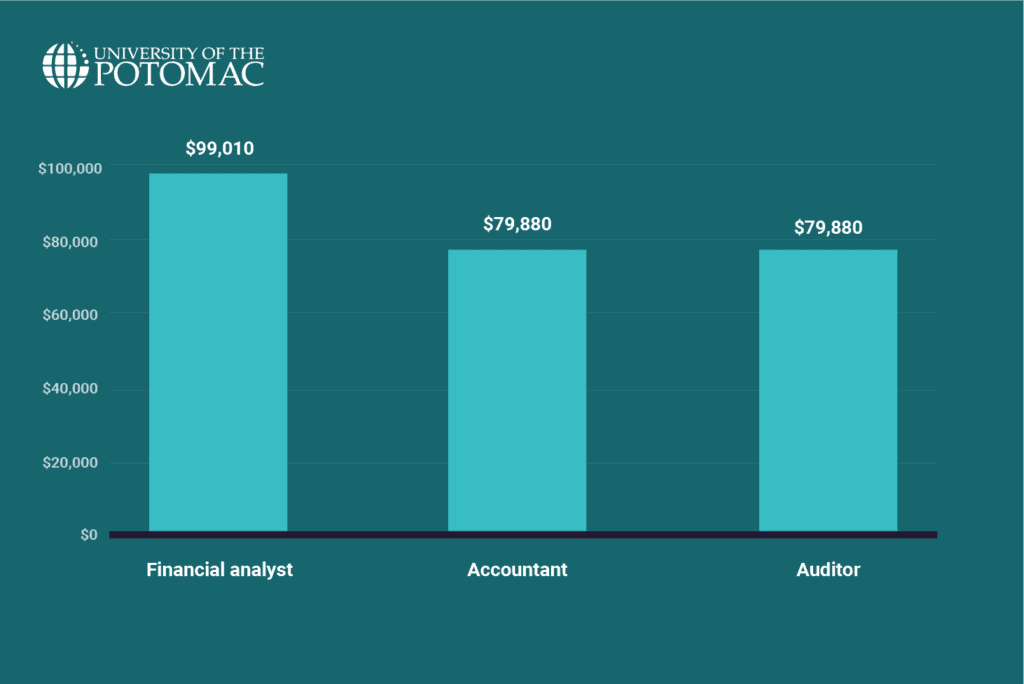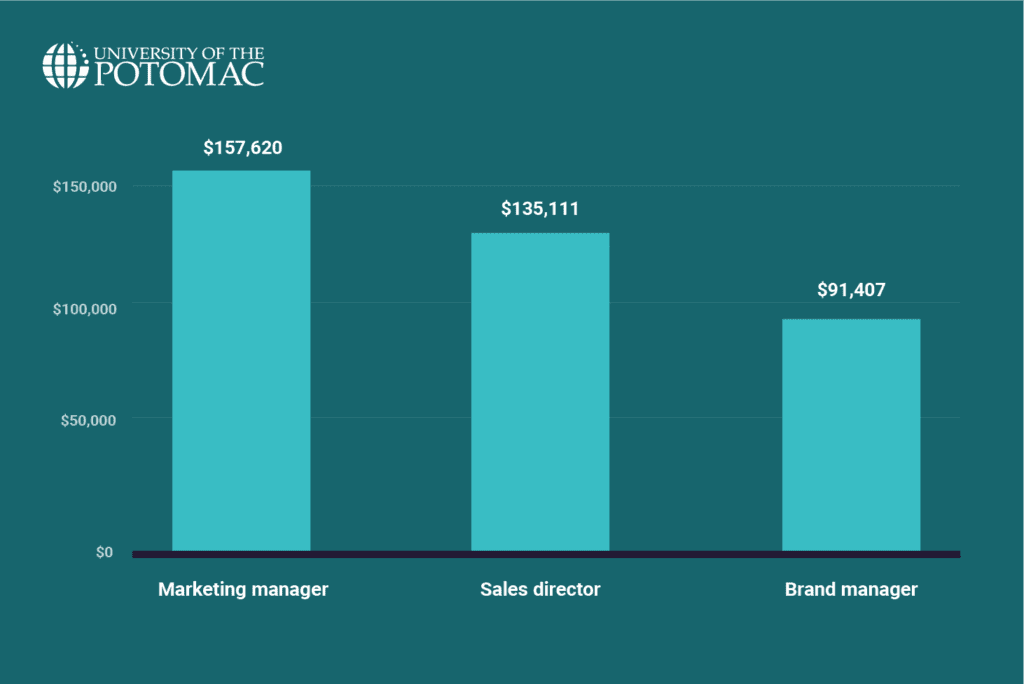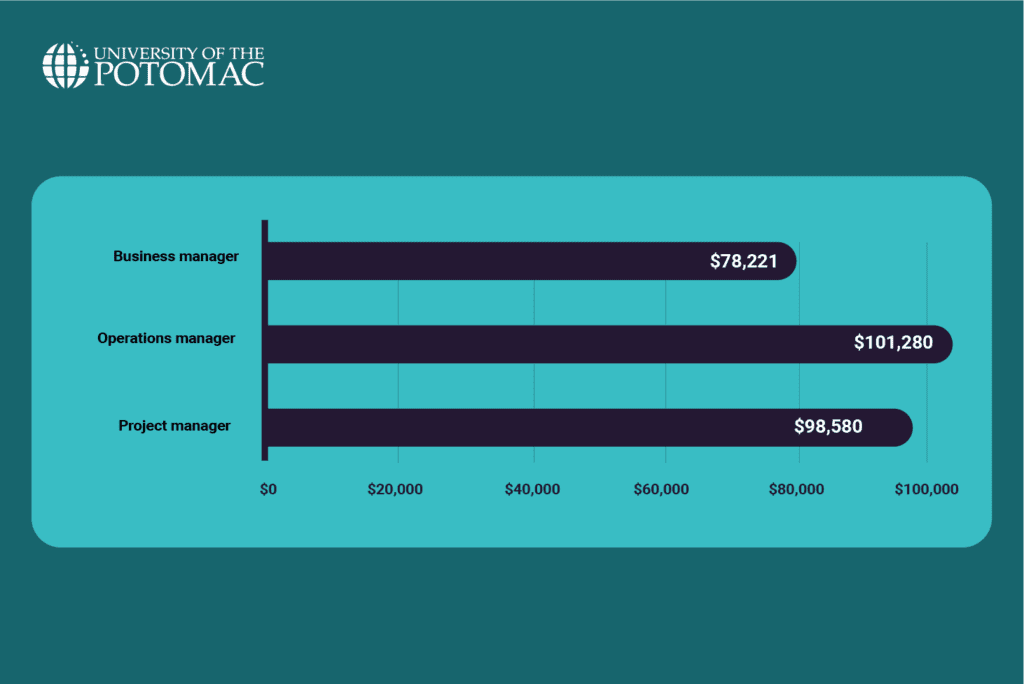- A business degree opens doors to a wide range of career paths in fields like finance, marketing, human resources, and management.
- Specialized roles such as financial analyst, marketing manager, HR manager, and project manager offer competitive salaries and opportunities for advancement.
- Networking, gaining work experience, and earning additional certifications can help you leverage your business degree for greater career growth.
- While a business degree can provide many career opportunities, it’s important to consider your interests, skills, and long-term goals before committing to this path.
Are you looking for a degree program that won’t limit your options for a job after graduation? Do you like to be flexible and try out many possibilities until you find the one that works best for you? Think about pursuing a degree in business.
A business degree is like a Swiss knife. It can put you on a track for a lucrative career in finance or make you the most successful creative in a marketing agency, and this is just the tip of the iceberg.
If you can’t grasp the extent of what jobs can you get with a business degree, read on as we explore some of the most common career paths you can follow after graduation.
Top Jobs You Can Get With A Business Degree
With a business degree, you will have the opportunity to pursue various careers in different fields. If you’re a numbers person, you can pursue a career in finance. If you’re a creative thinker, then you can progress far in your marketing career. Alternatively, if you’re a people person, a business degree can consolidate your skills as a manager or HR officer.
And, these careers can be pursued in as many industries as you can think about. Let’s get into more detail about each area and the job options that come with them.
Finance and accounting careers

An obvious choice for many business graduates are careers in finance and accounting, two of the most rewarding fields in the industry. Let’s explore three of the most common careers you can pursue in finance and accounting.
Financial analyst
A financial analyst helps businesses make smart decisions by studying financial data, spotting trends, and giving advice. As a financial analyst, you create reports and recommend actions for things like investments and budgets.
To do this job, you need strong analytical skills, good financial software skills, and close attention to detail. Financial analysts can focus on different areas, like investments, company finances, or risk, offering lots of career options.
As you move up the career ladder, you can get positions such as Risk Analyst, Equity Research Analyst, Finance Manager, Chief Financial Officer, and more.
Average annual salary: $99,010
Accountant
Accountants are responsible for maintaining financial records, handling tax returns, and making sure businesses follow the rules. They help keep finances organized and accurate.
To be successful as an accountant, you need to be detail-oriented, know how to use accounting software and understand financial laws. As an accountant, you can work in different areas, like public accounting, managing business finances, or investigating financial issues.
Average annual salary: $79,880
Auditor
An auditor checks financial records, accounting systems, and company processes to ensure accuracy and compliance with rules. They also give an independent opinion about a business’s financial health.
If you pursue such a career, you need to possess an arsenal of skills that combines technical expertise, analytical skills, interpersonal abilities, and attention to detail.
Average annual salary: $79,880
Marketing and sales careers

Alternatively, a business degree can give you the skills you need to succeed in marketing and sales. These careers offer a mix of creativity and strategy in diverse industries. Let’s explore some of these roles.
Marketing manager
As a marketing manager, you’re responsible for planning, executing, and overseeing strategies to promote a company’s products or services.
In this role, you’ll manage campaigns, analyze market trends, and collaborate with teams to deliver effective marketing solutions that attract customers and increase sales.
Being a marketing manager offers exciting benefits, such as working in diverse industries, leading creative projects, and playing a key role in driving a company’s success.
Average annual salary: $157,620
Sales director
As a sales director, you’ll lead and oversee a company’s sales operations. Your responsibility will be to create effective sales strategies, manage sales teams, and ensure that revenue goals and sales targets are achieved.
This role is critical in driving business growth and maintaining strong customer relationships. Therefore, you will need skills such as leadership, market analysis, sales techniques, strong communication, and problem-solving.
Average annual salary: $135,111
Brand manager
As a brand manager, you’ll be responsible for shaping how consumers view a company and its products.
In this career path, you will focus on strategic planning and execution to build brand awareness, foster customer loyalty, and create a strong market position. Your work ensures the brand stands out and remains competitive in the marketplace.
Average annual salary: $91,407
Human resources careers

In addition to the typical business roles, a business degree also provides opportunities for careers in human resources (HR). HR professionals are essential in managing and supporting a company’s workforce. Let’s explore some common career paths you can pursue in HR.
HR manager
As an HR manager, you’re the key to building a strong workforce by helping a company hire, train, and keep the best employees. You ensure the company follows laws and regulations while managing employee performance and development.
In this role, you act as a link between employees and management, as such, helping create a positive and productive workplace. To be successful in this job, you need:
- Excellent communication and interpersonal skills
- Strategic thinking and organizational abilities
- Emotional intelligence and problem-solving skills
Average annual salary: $136,350
Recruitment specialist
If you pursue a career as a recruitment specialist, then you will be responsible for finding and hiring the right candidates for job openings within a company. Your focus will be on attracting top talent, managing the hiring process, and ensuring everything goes smoothly for both the candidates and the hiring managers.
To succeed in this position, you need strong communication and interpersonal skills, analytical and organizational abilities, and the ability to use data-driven tools like applicant tracking systems.
Average annual salary: $53,791
Employee relations manager
In the world of HR, you can also become an employee relations manager. In this position, you’ll be in charge of creating a positive and productive work environment by addressing workplace issues before they become bigger problems.
Your role here will be to ensure that employees feel valued and heard while working closely with management to ensure fairness, compliance, and alignment with the company’s culture and goals.
If mediation is your strong suit, then this role is ideal as it essentially entails balancing employee advocacy with business needs.
Interested in pursuing a degree?
Fill out the form and get all admission information you need regarding your chosen program.
This will only take a moment.
Message Received!
Thank you for reaching out to us. We will review your message and get right back to you within 24 hours.
If there is an urgent matter and you need to speak to someone immediately you can call at the following phone number:
- We value your privacy.
Average annual salary: $83,766
Management and leadership roles

With the right experience and training, business graduates can move into management and leadership roles. These positions involve leading teams, making important decisions, and helping the company achieve its goals. Let’s explore the top three manager positions you can pursue.
Business manager
As a business manager, you oversee a company’s or department’s daily operations. Your role is to ensure tasks are carried out efficiently and align with the company’s goals. In essence, your goal is to keep the organization productive and on track toward achieving its objectives.
As your focus is on improving processes, driving profitability, and maintaining smooth business operations, you need a specific skillset under your belt, including:
- Leadership and people management
- Strategic thinking
- Financial acumen
- Organizational skills
Average annual salary: $78,221
Operations manager
Similarly, you can also become an operations manager, through which you will be in charge of improving the efficiency and effectiveness of an organization’s operations. Your job will be to manage people, processes, and resources with the goal of helping the company meet its goals, deliver high-quality results, and ensure everything runs smoothly on a daily basis.
As this role is essential for keeping operations efficient and driving the business’s overall success, you need to be skilled in team management, process optimization, and project management.
Average annual salary: $101,280
Project manager
One of the most highly sought-after careers in recent years is that of a project manager, which shows no signs of slowing down. As a project manager, you’re responsible for planning, executing, and managing projects from start to finish. This means you will oversee resources, timelines, budgets, and communication to ensure that the project is completed successfully, on time, and within its goals.
As your job will be to keep projects on track, you will need a combination of communication, time management, organizational, budgeting, and problem-solving skills.
Average annual salary: $98,580
How To Leverage Your Business Degree For Career Growth?

Whatever career you desire to pursue, there are some key steps that can help you advance your career and make the most of your degree.
The first thing is to start building a professional network. To do this, you can attend industry events, join professional groups, and connect with alumni to learn from others and find job opportunities.
Another key step is to gain relevant work experience during your studies. You can do this through internships, part-time jobs, or volunteering in business-related roles.
Additionally, you can boost your chances by getting extra certifications or learning specialized skills like project management, digital marketing, or data analysis.
Is A Business Degree Right For You?
Whether a business degree is the right choice for you depends completely on your skills, interests, and goals. For example, if you have strong communication skills, enjoy solving problems, and are interested in leadership, strategy, or finance, a business degree can open many doors. A career in business requires you to analyze data, come up with strategies, and work well in teams, so being comfortable with these activities is important.
However, earning a business degree takes a lot of time, effort, and dedication. It’s important to be prepared for the challenges of coursework, group projects, and extracurricular activities while also managing your family and social life.
So, before you decide, make sure that this path aligns with your strengths and ambitions to ensure it’s the right choice for you.
Conclusion
A business degree offers a broad range of career opportunities across various industries. Whether you aspire to work with numbers, people, or lead projects, a business degree gives you a versatile skillset to succeed in your career.
Curious about how a Business BA could shape your future? Check out POTOMAC’s Business program to see how it can open doors to a wide range of exciting career opportunities!
Frequently Asked Questions
What is the difference between a business degree and an MBA?
A business degree provides foundational knowledge in business, while an MBA offers advanced, specialized education for leadership and management roles.
How long does it take to complete a business degree?
A business degree typically takes 4 years to complete an undergraduate program.
Can a business degree help you start your own business?
Yes, a business degree equips you with essential skills in management, finance, and marketing, which are valuable for starting and running your own business.










